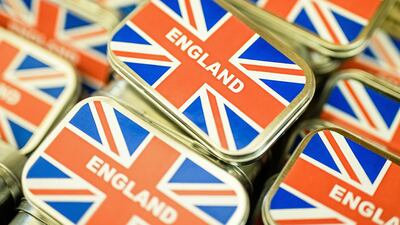Britain is now “overwhelmingly a country of pessimists” divided into seven so-called “tribes”, two of which support hostile views about immigration and Muslims in particular, according to a new report.
Old allegiances and affiliations to traditional political parties have well and truly been ripped up. Campaign group Hope Not Hate say that almost three-quarters of the UK feels that no single party speaks for them and are now split into seven categories: namely ‘Active Multiculturalists’ who are the most socially liberal, ‘Liberal Remainers’, ‘Established Optimists’ that favour centrism, ‘Comfortable Ambivalent’ and ‘Anxious Ambivalent’ groups, ‘Hostile Brexiters’ that identify with Nigel Farage's Brexit Party and ‘Anti-Establishment Pessimists’, the most extreme group open to violence but less motivated by Brexit.
While Brexit has polarised allegiances between those wishing to stay in Europe (Remainers) and those backing Britain to pursue whatever means necessary to leave Europe (Brexiteers), the share of those who view immigration and multiculturalism as overwhelmingly positive is in fact larger than those who oppose it.
Two liberal, Remain-supporting tribes make up 28.7% of the UK population, although the share of the population who belong to immigration positive and multiculturalist groups makes up 45%.
The two ‘tribes’ that hold hostile views on immigration is estimated at 32.3%, though one group is driven by Brexit while the other is more hostile to immigration and Muslims in particular. People who identify with the latter are most likely to support the English Defence League’s Stephen Yaxley-Lennon.
Muslims are viewed more negatively than any other group, and while anti-Muslim sentiment is strongly felt by those that oppose multiculturalism, people who generally have liberal attitudes also hold negative views about Muslims.
The report also found that the way people view their identity is bound with how they perceive others; more than twice as many people feel British than they do English, with those hostile to immigration more likely to identify as English.
Britain’s Muslim and south Asian community feel that Brexit has legitimised hate against them in particular, with 61% of Pakistani and Bangladeshis agreeing with the view that Brexit has enabled and given leverage for people to be openly prejudiced.
“As time has gone on, the Brexit process has degraded political trust, with pessimism and anti-establishment anger rising, which for many is distilling into hatred in a backlash against an ‘elite’, veiled in narratives about suppression by ‘PC culture’”, said Nick Lowles, chief executive of Hope Not Hate and co-author of the report.
“These narratives are particularly potent as many people do feel suppressed and voiceless. There are a lot of people in this country who feel disconnected from the political system, frustrated and disappointed with the direction of their own lives”.
“As the threat of a no-deal Brexit looms closer, the disastrous economic consequences will only widen these cracks and divide us further,” he added.
Rosie Carter, a co-author and senior policy officer at Hope Not Hate, fears that Brexit has “already changed Britain” despite the country still effectively in the EU.
“People are retreating into disparate and worryingly rigid tribes, with little overlap of views, and with less and less empathy for one another’s views.”

